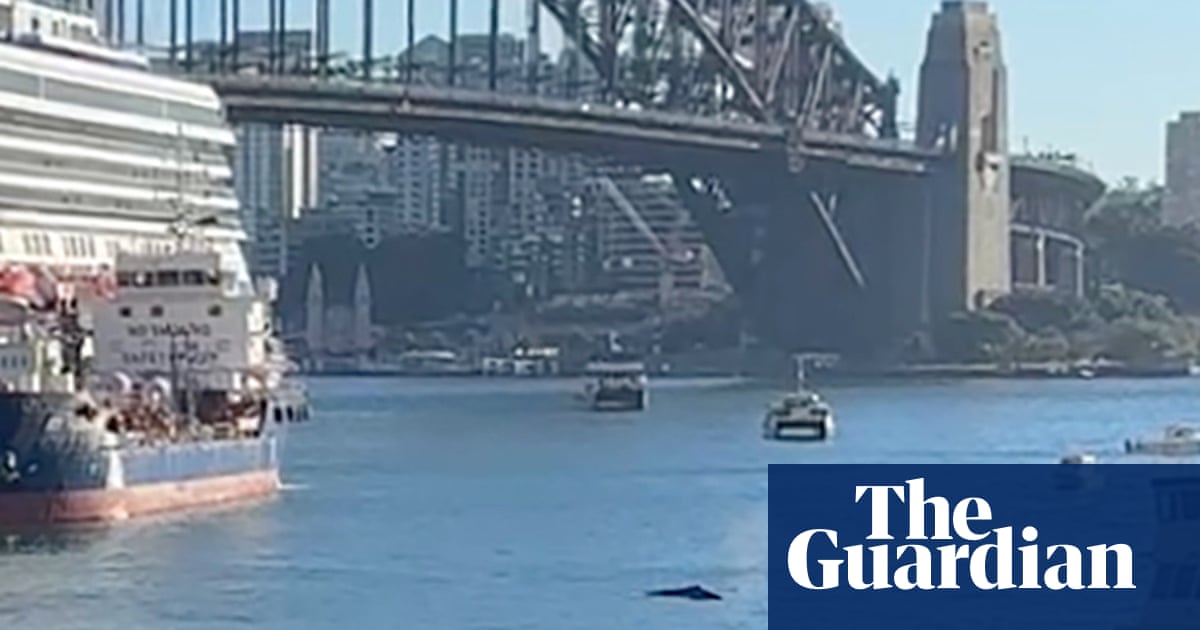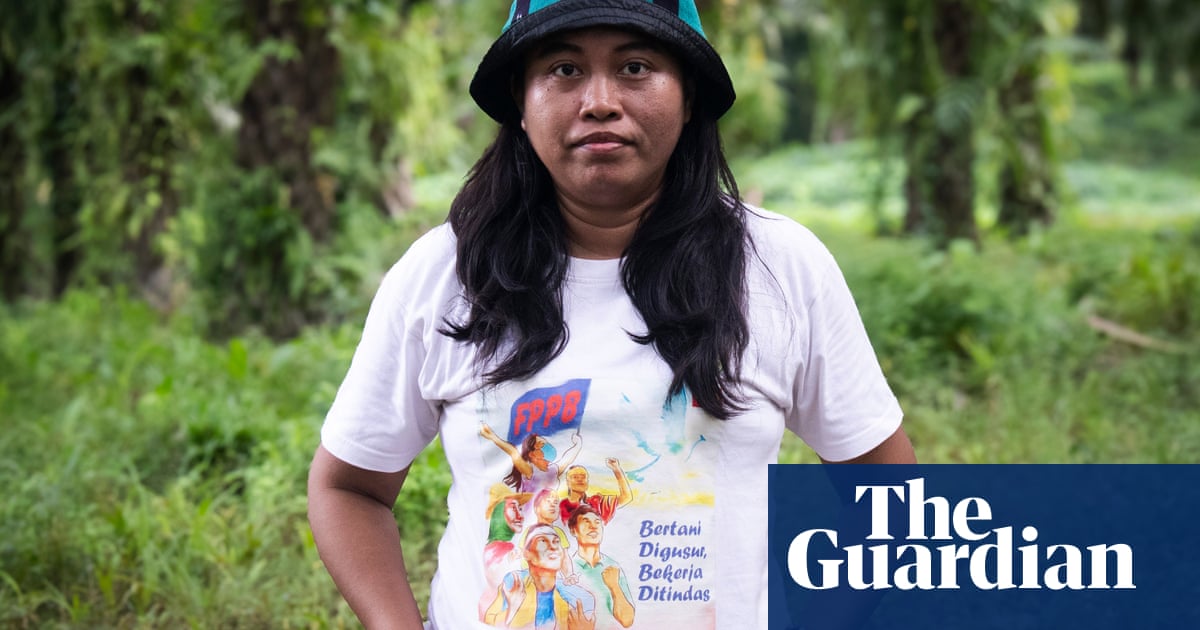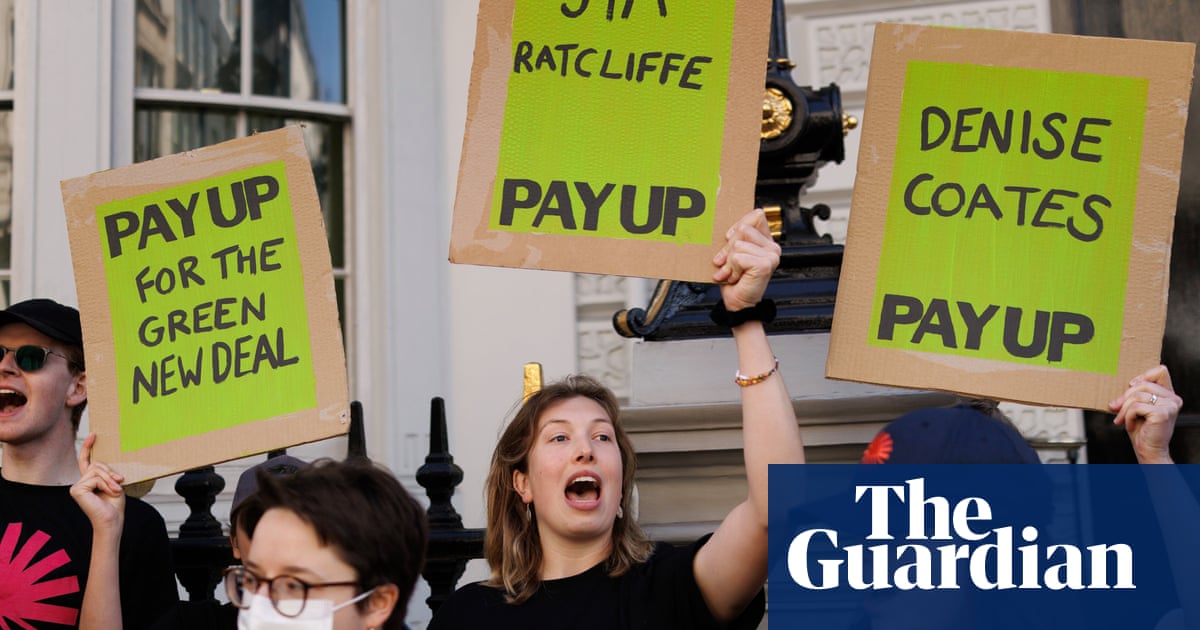Puerto Rican municipalities take on Big Oil in court using a law made for the mob » Yale Climate Connections

Melissa “Missy” Sims is an attorney with a long history of confronting powerful fossil fuel interests. Now she’s part of a legal team representing more than three dozen municipalities in a landmark lawsuit against Exxon and more than a dozen other oil and gas companies. The suit seeks damages tied to the devastating impacts of Hurricanes Maria and Irma in 2017 – storms that, according to recent science, were intensified by warming oceans and increased atmospheric moisture caused by climate-warming pollution. (You may have seen news of the Commonwealth of Puerto Rico dropping its lawsuit against oil companies, but 37 Puerto Rican municipalities are continuing the fight in a separate suit).
The case alleges that these companies are collectively responsible for about 40% of global industrial greenhouse gas emissions between 1965 and 2017. It further asserts that the defendants misled the public about the risks posed by their products, despite knowing of the connection between fossil fuel combustion and climate change. According to the complaint, this misinformation campaign contributed to the nearly 3,000 deaths resulting from Hurricane Maria and exacerbated Puerto Rico’s vulnerability to extreme weather.
This is not Sims’s first challenge to Exxon. In 2006, she represented the Village of DePue, Illinois, in a case against Exxon and others related to toxic pollution from a shuttered zinc smelting plant. That case helped establish her career-long focus on holding environmental polluters accountable.
Yale Climate Connections spoke with Sims about her work, including her use of the Racketeer Influenced and Corrupt Organizations Act (RICO) – a statute originally created to prosecute organized crime but now being applied to corporate fraud and environmental misconduct.
This interview has been edited for clarity and length.
Yale Climate Connections: Let us begin with the basics. What is RICO, and how is it relevant to environmental litigation?
Missy Sims: RICO is not a novel theory. The Supreme Court ratified the 1970 [RICO] statute in the seminal Sedima, S.P.R.L. v. Imrex Co. decision, which clarified and broadly affirmed the applicability of RICO in civil cases, rejecting efforts to restrict its use to organized crime. The Court held that plaintiffs do not need to show a criminal conviction and that mail and wire fraud could constitute predicate acts [previous offenses]. This opened the door to widespread use of civil RICO, particularly in business fraud, and in public health cases against tobacco, and opioid companies.
RICO requires a pattern of racketeering activity among more than one person outside of its organization, which must be based upon two or more predicate offenses, which can include wire fraud or mail fraud. Fraud, by legal definition, is the knowing misrepresentation of material facts. If those misrepresentations are repeated and result in economic harm, a RICO claim may be sustained.
For example, if a company and a person outside the company participates to market products as environmentally responsible but knowingly misleads the public, and someone relies on those representations to their detriment, that activity could be part of a racketeering enterprise. RICO was originally designed to target organized crime, but it has been used in civil contexts where victims suffer economic harm as a result of coordinated fraud.
YCC: Do the injuries under RICO have to be financial?
Sims: Yes, they must be. The U.S. Supreme Court recently clarified in Medical Marijuana, Inc. v. Horn that RICO claims must involve economic harm. However, the Court held that economic harm resulting from a personal injury may qualify. For instance, if a person suffers emotional distress due to a fraudulent scheme and subsequently loses their job, the resulting loss of income would be considered an economic injury under RICO. The injury cannot be solely emotional or reputational – it must have a quantifiable financial component.
YCC: Could it be damage to the whole economy of, say, a town, or a municipality?
Sims: It certainly can. That is how the claims were framed in the national opioid litigation, and it is how we are pleading the harm in the climate change cases. Municipalities have suffered widespread economic damage – from infrastructure loss to public health expenditures – as a result of conduct we allege was both fraudulent and coordinated. That type of economic disruption is exactly the kind of harm RICO was intended to address.


YCC: What made you decide to apply RICO in the climate context?
Sims: I was not the first person to make this connection. The nearly 40 years of precedent makes RICO a compelling option. It offers treble damages, attorneys’ fees, and the possibility of injunctive relief [a court order to not do or start to do something]. These remedies make it a particularly strong tool in environmental litigation. While some may view its application to climate fraud as novel, its use in analogous cases – like tobacco and opioids – demonstrates its adaptability and relevance.
YCC: Do you expect it to be harder to win these cases under the current political climate?
Sims: RICO is used frequently by corporations and large defense firms. It is not limited to plaintiff firms. In fact, major corporate defense law firms often deploy RICO against competitors in commercial disputes. As such, I do not believe the statute is in danger of repeal or disfavor. The law remains a potent and bipartisan instrument, particularly in federal court.
YCC: Once a RICO case is filed, what happens next?
Sims: One of the immediate issues is often personal jurisdiction. RICO provides for nationwide jurisdiction, which is extremely advantageous. Personal jurisdiction requires showing a company has ties to the specific state—like doing business or causing harm there. Nationwide jurisdiction applies in federal cases like RICO, where a company’s ties to the U.S. as a whole are enough. Why it matters: It allows all defendants to be sued in one federal court, without needing to prove local connections in every state.
Though the injuries must be domestic, the conduct giving rise to the injuries can occur internationally, which is especially relevant in climate litigation.
Defendants will typically attempt to transfer the case to a venue more favorable to them – usually where their headquarters are located or where they exert economic influence. This kind of forum shopping is common. Plaintiffs, in response, must demonstrate that the defendants have sufficient minimum contacts with the chosen jurisdiction.
There is a particularly instructive case from the Seventh Circuit, Charles Curry d/b/a Get Diesel Nutrition v. Revolution Labs, LLC, which held that selling products online with the intent to reach a nationwide audience can establish personal jurisdiction in any state where harm occurs.
In the context of climate litigation, we can show that fossil fuel companies targeted coastal communities – knowing those areas would be disproportionately affected by rising sea levels, more intense hurricanes, and flooding.
They promoted fossil fuel use in coastal cities, built infrastructure in high-risk zones, and lobbied local governments—despite knowing those areas would face the worst climate impacts. Their own research showed that burning fossil fuels would melt ice caps, increase water in oceans and the atmosphere, and lead to more flooding and extreme rainfall in coastal regions. Instead of warning the public, they quietly prepared their assets and kept expanding in those vulnerable areas. That kind of specific targeting strengthens our jurisdictional arguments.
YCC: So they would want to have it tried in a state where they’re based because they would hope that the judge and/or the jury would be more sympathetic?
Sims: Companies often operate under the assumption that familiarity with the local legal environment, along with their economic footprint and historical presence in the area may position them more favorably in litigation. They may believe that being a major employer or taxpayer creates a context where their operations are better understood.
However, recent cases suggest that assumption may no longer ring true. In April 2025, a Louisiana jury awarded $744.6 million against Chevron for its role in contributing to coastal land loss in Plaquemines parish where Chevron has operated for decades and maintains significant infrastructure and personnel. This outcome illustrates that even in jurisdictions where companies have deep roots, juries are increasingly willing to hold them accountable for large-scale environmental damage.
YCC: And many of these companies operate in regions that are very vulnerable to extreme weather.
Sims: That is correct. And now, in many of those same states, homeowners cannot obtain affordable insurance coverage. Insurers are withdrawing from markets they deem too risky, and the few remaining policies are often prohibitively expensive. As a result, public awareness of climate risk is rising. People are no longer debating whether climate change exists; they are experiencing its effects directly.
YCC: Can you explain the difference between a bench trial and a jury trial?
Sims: As a plaintiffs’ lawyer, I generally prefer a jury trial. Judges bring deep experience to these cases and often approach them with a focus on legal precision and the application of established standards – particularly regarding compensatory damages. Juries, by contrast, may be more attuned to the broader social and environmental consequences of corporate misconduct and may be more inclined to consider the full scope of harm, including punitive damages where appropriate. Jury verdicts also send a powerful message to corporate headquarters that the public – many of whom are also shareholders – are demanding change. Through this process, we have an opportunity to serve as agents of corporate responsibility and accountability.
YCC: Thank you for your time and insight.
Sims: It has been my pleasure. Thank you.






